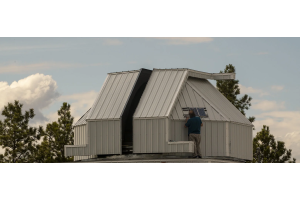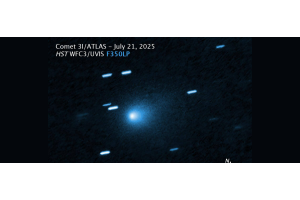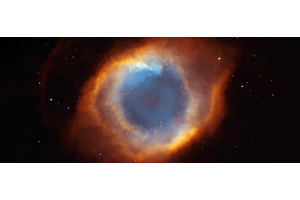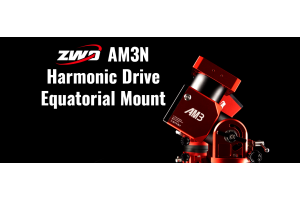High Point Scientific Team
- September 17, 2025
Observatories are home to some of the biggest and most impressive telescopes in the world. As many amateur astronomers know, there are many ways to experience the night sky beyond looking through a backyard telescope. There is an impressive number of...
- August 22, 2025
There is no faster way to degrade your telescope's optics than to pair it with a low- quality bargain-bin eyepiece. Choosing the right eyepieces for your telescope goes beyond just basic magnification. Poorly made telescope accessories and eyepieces can...
- August 01, 2025
In recent years imaging Newtonian telescopes have become extremely popular due to their “fast optics” and high-performing value per dollar when compared to refractors or other more complex optical systems.
- August 01, 2025
Collimation can be intimidating, especially for the first time after your new telescope makes a trip from our facility to its new home, and we understand that. Knowing the process of collimation, as well as the intended goal is extremely helpful.
- June 25, 2025
Observatories are home to some of the biggest and most impressive telescopes in the world. As many amateur astronomers know, there are many ways to experience the night sky beyond looking through a backyard telescope. Learn more about observatories in...
- May 30, 2025
There are roughly 5,000 - 10,000 stars in the night sky that are visible to the naked eye. Many of these stars can be used as “pointer” stars to help lead your way to faint celestial objects. This article will serve as a general overview of some basic...
- April 03, 2025
We recently acquired a quantity of factory sealed Meade LX600 Telescopes! To ensure quality and a top notch customer experience, we ran each telescope through its paces at our facility in New Jersey.
- March 21, 2025
Astronomy goes far beyond the facts that many of us are taught to memorize. It is where science begins and where it will end. It incorporates every discipline, from math to physics to chemistry. It is a deeply important field that shouldn’t be reserved...
- March 17, 2025
A solar eclipse occurs when the Moon passes between the Sun and Earth, casting a shadow on our planet's surface. During this phenomenon, the Moon appears to completely or partially cover the Sun, creating a dramatic and awe-inspiring celestial display...
- March 12, 2025
If you purchased your solar eclipse glasses from High Point Scientific, regardless of the brand, you can be assured that they are certified to be safe for solar viewing when used as directed. If you purchased your glasses from another vendor or were gifted...
- March 10, 2025
If you've never observed a solar eclipse, you may have a lot of expectations that differ from reality. Let’s go over some of those differences so you don’t find yourself disappointed when the eclipse occurs!
- March 05, 2025
Throughout history, solar eclipses have been viewed with great significance and wonder. Over time, meticulous observers noticed that eclipses appeared to come in cycles and that one could predict exactly when and where an eclipse would happen.
- March 03, 2025
There are many misconceptions about what a lunar eclipse is. Will the Moon actually turn red? Can I look at the Moon during the eclipse? For an experienced astronomer, the answer to these questions may seem obvious. But for a complete beginner to the...
- February 21, 2025
A total lunar eclipse occurs when the Moon passes behind the Earth’s shadow, turning the Moon a deep, dark red color. This red color is why some call a lunar eclipse a “blood moon”. During the eclipse, all direct sunlight to the lunar surface is completely...
- February 18, 2025
If you’re fortunate enough to be in the path of a total solar eclipse, you’ll have anywhere from 2-5 minutes to capture tons of different detail in the Sun’s atmosphere. These different features can be captured by adjusting your exposure and getting the...






